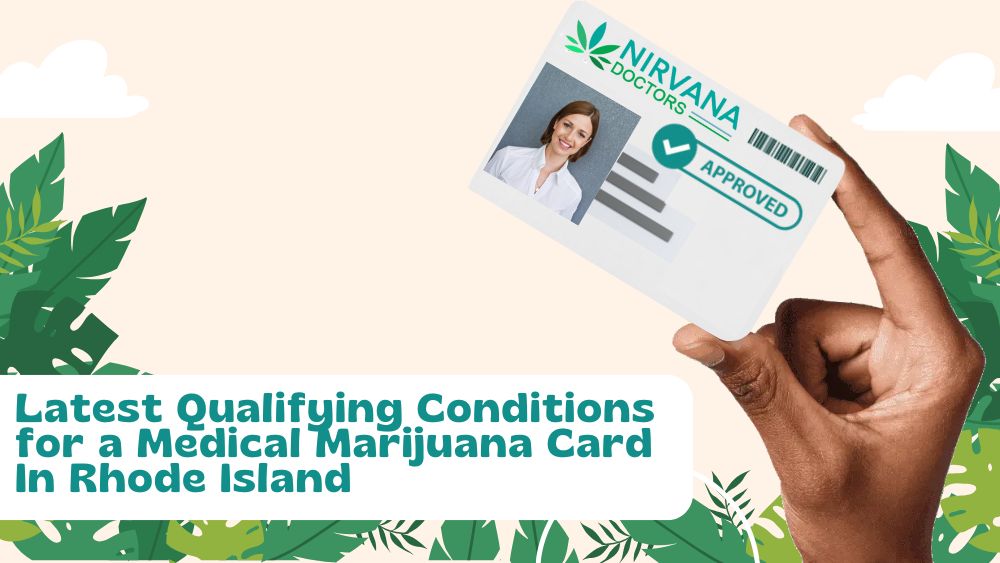Overview of the Massachusetts Medical Marijuana Program
Rhode Island has long been a pioneer in medical marijuana legislation, establishing a program that allows patients with qualifying medical conditions to access cannabis for therapeutic purposes. In 2025, Rhode Island continues to align its policies with those of neighboring Massachusetts, enhancing accessibility and patient care. Massachusetts boasts a comprehensive medical marijuana program that serves as a model, with clear guidelines on the qualifying conditions and the application process for obtaining a medical marijuana card (MMJ card).
Updated List of Qualifying Conditions for 2025
As of 2025, Rhode Island has expanded its list of qualifying conditions for obtaining an MMJ card. While the core conditions remain similar, several new additions reflect ongoing research and changing perceptions of medical cannabis. The updated list includes:
- Cancer: Patients undergoing treatment for cancer can benefit from the alleviating properties of cannabis.
- Glaucoma: This eye condition can lead to blindness, and cannabis has shown potential in reducing intraocular pressure.
- HIV/AIDS: Medical marijuana can help manage symptoms associated with HIV/AIDS and improve the quality of life.
- Crohn’s Disease: The anti-inflammatory properties of cannabis may provide relief to patients suffering from this chronic digestive condition.
- PTSD (Post-Traumatic Stress Disorder): Veterans and other individuals experiencing PTSD can find relief through cannabis therapy.
- Chronic Pain: Patients suffering from chronic pain conditions may qualify for an MMJ card.
- Multiple Sclerosis: Cannabis may help manage muscle spasms and other symptoms related to MS.
- Seizures (including epilepsy): Medical marijuana has been found effective in reducing the frequency and severity of seizures.
- Severe Nausea: This can be related to various conditions, including those undergoing chemotherapy.
- Autism Spectrum Disorder: Recognizing the needs of individuals with autism, cannabis may assist in symptom management.
- New Additions for 2025: Conditions like anxiety disorders, migraines, and depression have been added to support patients with mental health concerns.
How to Apply for a Medical Marijuana Card
If you believe you qualify based on the updated conditions, here’s a step-by-step guide on how to apply for a medical marijuana card in Rhode Island:
Step 1: Consult a Licensed Healthcare Provider
The first and most crucial step is to consult a licensed healthcare provider who is familiar with medical marijuana. They will assess your medical history and determine if you qualify based on the state’s criteria. This consultation is vital, as a recommendation from a qualified professional is mandatory for the application process.
Step 2: Gather Necessary Documentation
Collect all necessary documents, including your ID, proof of residency, and any medical records relevant to your qualifying condition. Documentation that supports your case can significantly strengthen your application.
Step 3: Complete the Application
Visit the Rhode Island Department of Health’s website to access the MMJ card application. Ensure all sections are filled out accurately. Pay attention to detail to avoid unnecessary delays in processing.
Step 4: Submit Your Application and Pay Fees
After completing your application, submit it online or by mail, along with any applicable fees. The state has a designated processing time, typically taking around 30 days, so be patient during this period.
Step 5: Receive Your MMJ Card
Once your application is approved, you will receive your MMJ card in the mail. With this card, you can legally purchase medical marijuana from licensed dispensaries in Rhode Island.
Legislative Changes in 2025
2025 has seen significant legislative changes in Rhode Island’s medical marijuana landscape. The state has streamlined the application process and reduced fees, making it more accessible for patients. Furthermore, lawmakers are actively considering expanding the list of qualifying conditions, reflecting a growing recognition of the benefits of medical marijuana in treating various health issues.
Importance of Consulting a Licensed Healthcare Provider
Consulting with a licensed healthcare provider is essential for anyone considering applying for a medical marijuana card. A qualified professional will provide personalized guidance based on your medical history and conditions, ensuring that you make informed decisions regarding your health and treatment options.
Frequently Asked Questions (FAQs)
-
What is a medical marijuana card?
- A medical marijuana card allows patients to legally obtain and use cannabis for medicinal purposes.
-
How do I know if I qualify for an MMJ card?
- You must have a qualifying medical condition and obtain a recommendation from a licensed healthcare provider.
-
Can I use my MMJ card in other states?
- It depends on state laws; some states recognize out-of-state MMJ cards while others do not.
-
What is the cost of obtaining a medical marijuana card?
- Costs vary, including consultation fees and application fees. Check with the Rhode Island Department of Health for specifics.
-
How long does it take to get an MMJ card?
- The typical processing time is about 30 days after submitting your application.
-
Is there an age limit for applying for an MMJ card?
- Patients must be at least 18 years old. Minors can apply with parental consent.
-
What should I do if my application is denied?
- You can request a review or reapply with additional documentation if necessary.
-
Can I grow my own cannabis with an MMJ card?
- Yes, but there are specific regulations regarding the number of plants you can grow.
-
What forms of medical marijuana can I use?
- Options include oils, capsules, edibles, and smokable forms, depending on the dispensary.
-
Is medical marijuana safe?
- Like any medication, it should be used under the guidance of a healthcare provider to ensure safety and efficacy.
